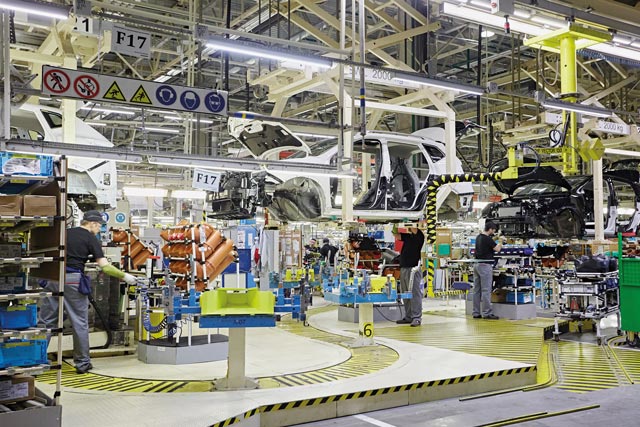

Recent changes to how the UK does business have highlighted the need for manufacturers to instil a lean culture for a greener and more efficient future, says Andy Spence, director of operations at SMMT Industry Forum
The Government’s recent ten-point plan for a green industrial revolution focuses on moving towards a greener future and a commitment to becoming carbon neutral.
Coupled with the continuing impact of Brexit and the Covid-19 pandemic, manufacturers are facing a need to revolutionise to remain competitive while simultaneously transforming their environmental capabilities.
The UK has the talent, technical expertise, and engineering capability to compete in a post-Brexit, greener economy. However, without the right continuous improvement principles in place maximum efficiency cannot be reached. A failure to recognise the perennial importance of efficiency not only drives up costs and limits competitiveness but will also increase environmental impact.
Rather than being in an optimal position to move forward to meet these challenges, many manufacturers have lost focus on the benefits of “Lean” over recent years, seeing it as an activity they have “done” rather than the way to drive future improvement. In too many cases the capabilities that had been developed have been lost as those with expertise have moved upward or onward, without replenishing the skills and maintaining the constant focus required.
The failing is that Lean today is not driven in a strategic way, with bottom-up engagement and top-down commitment – linked to business goals, cascaded through the company, and embedded into the day-to-day life of the organisation.
Lean thinking is a way of life which should be applied every day: this comes from deep understanding of the process; reflection; and building the knowledge to apply the appropriate tools and techniques to eliminate root causes of problems and continuously improve. Instead, there is now too much focus on managing the problem for today or “fix and forget”.
“Lean” itself can be a problem buzzword; the Japanese called it Continuous Process Improvement; the continuous part often seems to be forgotten. The Lean practitioner community does not always help itself with dogmatic and tribal viewpoints.
Developing competitive green manufacturing will require the combination of new technologies with maximised operational efficiency. You can drive technology innovation, digitalisation, and Industry 4.0 initiatives but without optimised processes you won’t get the full benefit. The best time to eliminate waste from a process is before a product starts to be manufactured. It is much easier than trying to improve substandard processes after launch. Lean thinking must start from the moment a new product or service is designed.
It is widely known that the value-added percentage of the manufacturing process is crucial to competitiveness. Actual manufacturing time needs to be as close as possible to the theoretical minimum time it takes to make something; waste must be eliminated and non-value-added time minimised. It has been that way for decades and the argument is only getting stronger with time.
By introducing Lean principles alongside others, such as Advanced Product Quality Planning and Total Productive Maintenance, it is possible to assure best quality and high process efficiency from the outset, then continuously improve throughout the product lifecycle. With manufacturing running as efficiently and effectively as possible, organisations can reduce energy, material use and emissions, supporting the drive to zero carbon emissions.
Brexit brings into focus the challenge of increasingly complex and politicised supply chains. This will require organisations to expand their Lean thinking well outside the factory walls to ensure deliveries are protected, materials remain accessible, and risks are managed well in advance.
SMMT Industry Forum can provide a set of assessment questions for companies to know if they are driving competitiveness and efficiency using Lean and other approaches, as well as defining the steps to get there. Underpinning all the lean activities is the need for a company to ask itself where it wants to go and the right way to approach it.
SMMT Industry Forum’s integrated team of consultants and practitioners provides support and training to manufacturers in adopting the principles of continuous improvement to increase competitiveness and optimise both manufacturing capability and business performance.
+44 121 717 6600 | enquiries@industryforum.co.uk
www.industryforum.co.uk/

